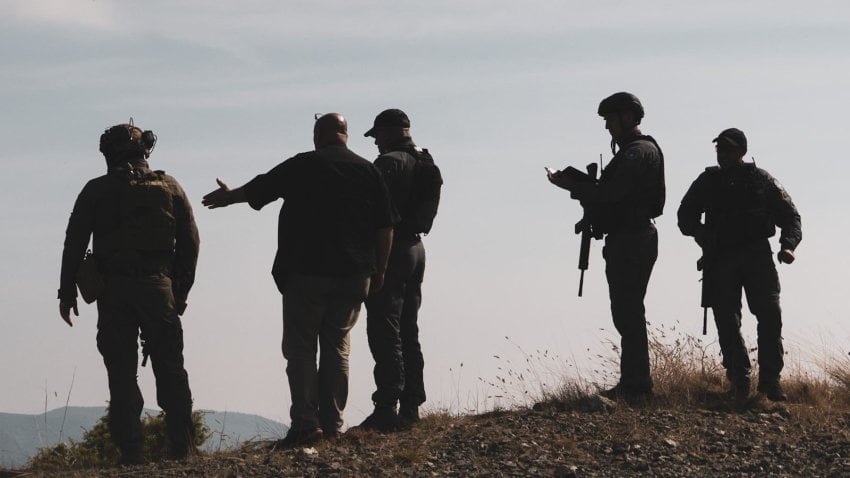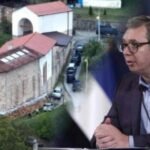The Kosovar Center for Security Studies has published a report examining the expansion of military special forces under Serbia’s “Project 5000” and its potential consequences on regional peace and stability.
“The ‘Project 5000’ initiative aims to strengthen Serbian special forces, increasing their number from 1500 to 5000. This ambitious expansion raises critical concerns about the shift in military balance and the increased risk of regional tensions.
The report outlines geopolitical ramifications, highlighting the project’s challenge to NATO’s strategic interests and its implications for the security landscape of the Western Balkans,” states the announcement from the Kosovar Center for Security Studies.
Threat to Regional Security
According to security expert Drizan Shala, Serbia’s “Project 5000” for its Army is a project with a political purpose, a military objective, and a security threat to the region.
“On January 13, 2023, the political stance of the Deputy Prime Minister and the Minister of Defense of Serbia indicated that the project in question is a political initiative to preserve Serbia’s military and political power balance amidst ongoing (and future) changes. By constructing new military bases in the northern part of Serbia (Vojvodina – to prevent any surprises from the NATO alliance) and in the Central and Eastern parts of Serbia to keep strategic interest points under control and achieve its military/political aim – Eastern Kosovo and the Republic of Kosovo,” Shala expressed for “Bota Sot”.
According to him, Serbia is aiming to modernize its army, including the acquisition of various drones.
“On May 25, 2023, according to the Serbian Minister of Defense, responding to contemporary security challenges and threats requires significant investments in weapons and military equipment, and in this direction, significant steps have been made in recent years by realizing the project of 5000 soldiers to serve in the Serbian Special Forces. On March 14, 2024, Serbia expressed its desire for a faster military modernization, including the acquisition of various drones and the development of domestic UAV technologies (President of Serbia). During a visit last week to the country’s Military Technical Institute in Belgrade (MIT), Vučić asked teams to accelerate the development of UAVs and declared that the government would invest more money to hire additional staff to ensure these aircraft are operational by the end of the year,” emphasizes Shala.
“The country’s MIT has jointly developed the multi-role UCAV Pegasus with the China Aerospace Science and Technology Corporation (CASC). Serbia has also purchased the fixed-wing drone FH-92 built by CASC, casting doubts on the country’s declared neutrality,” adds Shala.
Finally, Shala revealed Serbia’s objectives through the “Project 5000”.
“Investments in the expansion of special military structures. Investments in military technology, especially drones and anti-missile systems, etc. Investments in new military bases within its territory. Guaranteed investments from its positioning in the Russia-Ukraine conflict to supply the latter with ammunition, etc. Economic independence focusing on the new gas line from Azerbaijan,” concludes expert Drizan Shala.
Serbia Prepares for War
Meanwhile, international relations professor Dr. Enver Bytyçi for “Bota Sot” says that Serbia is continuously preparing for war.
“Not only the Kosovar Center for Security Studies but also state authorities, President Osmani and Prime Minister Kurti, as well as international representatives and experts, have made it known that Serbia is preparing for war in the Balkans. In fact, it is the President of Serbia, Aleksandar Vučić, who threatens especially Kosovo with military aggression every day. A few days ago, he said that the example of Nagorno-Karabakh in Azerbaijan makes him optimistic. He said this in the sense that, just as Baku waited for this region populated by Armenians, Serbia is also waiting for the moment to “return” Kosovo under its sovereignty,” states Bytyçi.
According to him, the multiplication of Serbian special forces is a very high risk for the region.
“However, Vučić is preparing for war. To raise the number of special forces from 1500 to 5000 in total, as the institute says, is more than preparation for war. The multiplication of Serbian special forces is a very high risk. Because in an invasion aggression against Kosovo or against Montenegro or Bosnia-Herzegovina, regular troops have a much harder time being successful. The advantage in defense against a normal army is much greater than that of military forces in attack. Only special forces can carry out actions that might be successful in a military attack. This is why Serbia wants an elite army,” concludes Enver Bytyçi for “Bota Sot”.







